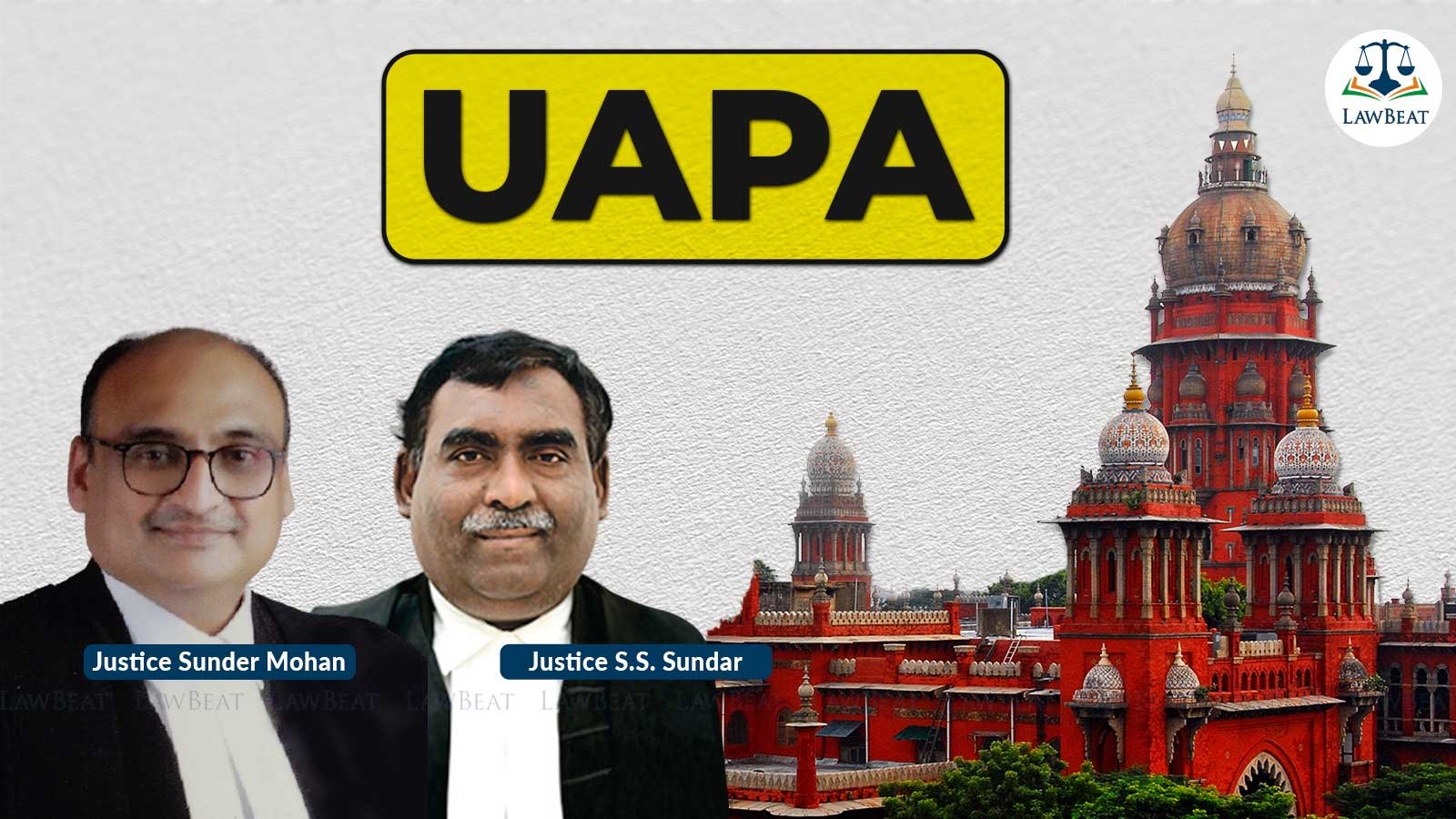"Accusations Based on Probabilities": Madras High Court Grants Bail to 8 PFI Members in UAPA Case

Court granted the relief to the accused persons stating that the accusations were based on probabilities rather than concrete evidence
The Madras High Court has recently granted bail to eight individuals, who were purportedly office bearers, members, and cadres of the Popular Front Of India (PFI), and had been charged under the Unlawful Activities Prevention Act (UAPA) for allegedly conspiring to commit acts of terrorism across various regions in India.
A bench consisting of Justice SS Sundar and Justice Sunder Mohan, in their judgment dated October 19, expressed the view that the evidence presented by the prosecution failed to establish a direct connection between any of the appellants and the alleged offences. Consequently, the special court's decision to deny them bail was deemed erroneous by the high court.
The accusations against the appellants revolved around a conspiracy to carry out terrorist acts targeting perceived anti-Islamic entities of other faiths. These acts were said to involve the deployment of hit squads to physically harm and terrorize these groups, with the intention of jeopardizing India's unity, integrity, security, and sovereignty.
The appellants argued that the special court had rejected their bail application on the basis of a mere prima facie case, lacking any specific allegations against them or substantial evidence. They contended that their arrests were made solely on the grounds of their association with PFI which, at the time of their arrest, was neither a banned organisation nor declared an unlawful association. Additionally, they argued that the National Investigation Agency (NIA) could not legally file an FIR without a report from the State Government as per Section 6(2) of the National Investigation Agency Act 2008.
However, the Additional Solicitor General presented evidence suggesting that the PFI had engaged in various terrorist activities as part of their goal to establish Muslim rule in the country by 2047 through planned acts of terrorism. The physical training activities conducted by the organization were cited as an indication of their intent to commit or prepare for terrorist acts under Section 18 of UAPA and Section 43(D)(5) of the Act.
The court, on the other hand, observed that for an act to qualify as preparatory, it should be closely linked to the intended act. In this case, even though the prosecution alleged that the accused had provided training to individuals in throwing water-filled beer bottles, with the intention of later making petrol bombs, no such petrol bombs were discovered. Hence, there was no proximity between the alleged preparation and the intended act, held the court.
Court also noted that apart from the FIR, there was no concrete evidence of the appellants' involvement in unlawful activities. Consequently, it concluded that the trial court had erroneously relied on mere allegations to deny bail under Section 43(D)(5) of the Act.
Regarding the NIA's decision to take up the case independently of a report from the State, the court clarified that an FIR filed by a police station officer was not a prerequisite for the Central Government to direct an NIA investigation. It further emphasized that requiring an FIR for such directions would render the relevant section redundant.
'If an FIR is required to be registered for the Central Government to direct the National Investigation Agency to investigate, then, the words, “if the Central Government is of the opinion that a Schedule offence has been committed which is required to be investigated under this Act'' in the sub section would be redundant. Therefore, the Central Government has powers to direct investigation even if there is no FIR registered by the officer-in-charge of the police station," court said.
However, due to the lack of concrete evidence linking the appellants to the alleged offences, court concluded that the accusations were based on probabilities and assumptions. Consequently, it granted conditional bail to all the appellants.
Case Title: Barakathullah and Others v Union of India
